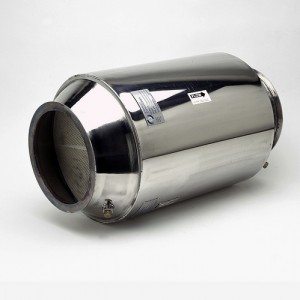The diesel particulate filter, or DPF, is a very important component to a vehicle’s diesel engine. The DPF is primarily responsible for cleaning the large particulates produced by a diesel engine from the exhaust lines and is therefore an aspect of diesel engines that should be cleaned regularly to promote efficiency and decrease the pollution put off by the vehicle.
Why clean the DPF?
Properly cleaning the diesel particulate filter on fleet vehicles will lead to many benefits such as better fuel economy for the vehicles, better engine performance, longevity of the engine, and added miles in between those time-consuming regeneration routines. But while most may simply use a blast of air to clean their fleet vehicle’s DPFs, there are better ways to give a thorough and proper cleaning to the particulate filter.
Things to consider
First, cleaning a DPF is not for the lay mechanic or weekend DIYer, so outsourcing the task of cleaning the DPF may be the best way to ensure a proper cleansing of the filter if one does not possess the needed skills in-house. Most heavy duty DPFs will need to be cleaned every 200,000 to 250,000 miles, so keeping track of records is an important step for DPF maintenance.
In addition, damaged or inefficient DPFs will need to be completely replaced in order to receive all of the benefits of a particulate filter on the diesel engine. DPFs operating under one hundred percent efficiency are not performing as they need to be and should be repaired or replaced.
Cleaning the DPF should be done by removing the component from the exhaust line and disassembling each part for inspection, cleaning, and repair or replacement as needed. Only by completely disassembling and proper cleaning can a DPF be truly prepared for future use.
